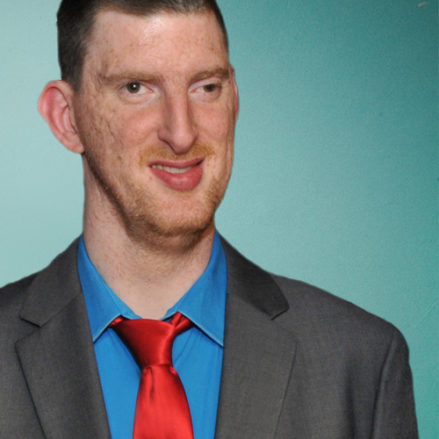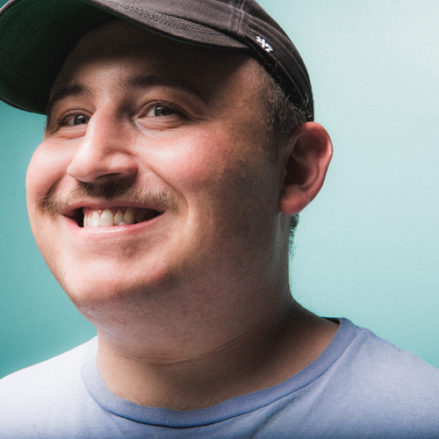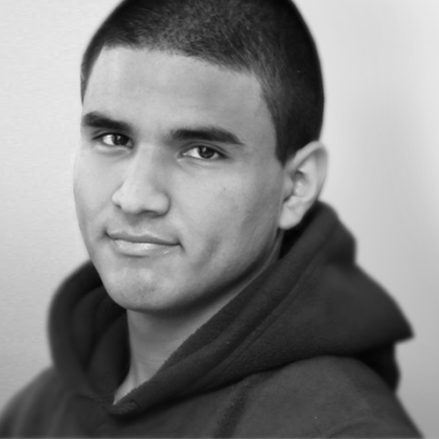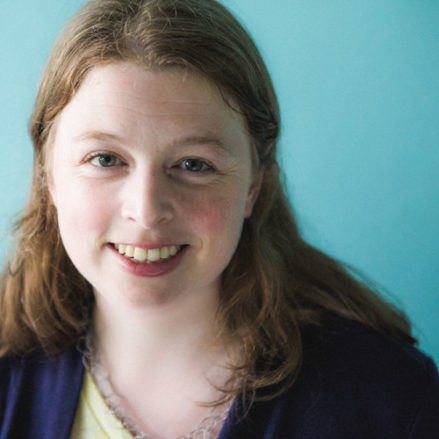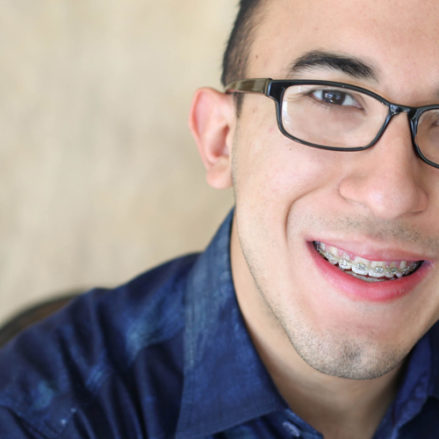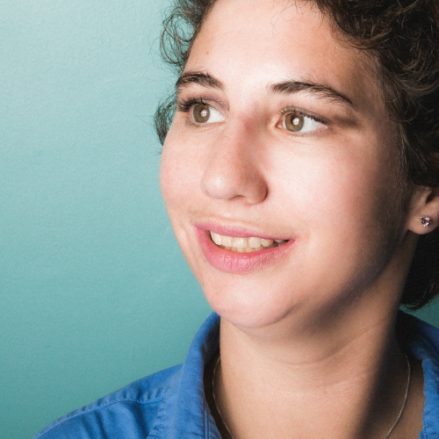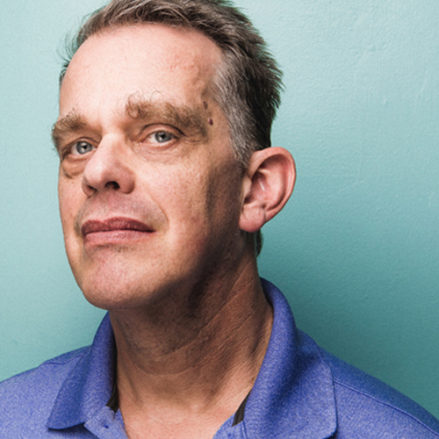 The school year is almost here, and our Resource Partners at Oak Wealth Advisors, LLC, offers their advice for having school success. Take a look at our favorite tips below, and read the full list at this link.
The school year is almost here, and our Resource Partners at Oak Wealth Advisors, LLC, offers their advice for having school success. Take a look at our favorite tips below, and read the full list at this link.
- Seek knowledge. Children with well-informed families tend to have more success in school than those who don’t educate themselves about available resources. You can check out Center for Independent Futures’ resources page, ask the school’s guidance counselor, or check out tips from special education teachers’ blogs.
- Share praise frequently. School staff members who know their efforts are appreciated are going to be more receptive to new ideas and be more positively predisposed toward your child. Your whole family will benefit from a positive relationship with school administrators and educators.
- Request IEP drafts before meetings. Knowing in advance what the school has seen in your child’s development before your IEP meeting is beneficial in many ways. You will have time to absorb any bad news and to generate ideas for alternative approaches to challenges. (For more information on creating inclusive person-centered IEPs, check out our newest back-to-school blog.)
- Keep good records. Detailed records of your child’s past goals and achievements are very important. These documents can remind you of school success and act as a reference when issues arise. Your good records will have great value.
- Plan for transition before your school initiates the discussion. Thinking ahead about adult goals and life skills as early as middle school will allow for a more productive transition process and increased clarity in goals at the start of high school so that the final years of school can be as productive as possible.
 To read the rest of the list and to see other resources from Oak Wealth Advisors, click here. Oak Wealth Advisors was founded to provide families with members with disabilities experienced financial advice and investment management services. To learn more about the services Oak Wealth Advisors provide, visit www.oakwealth.com.
To read the rest of the list and to see other resources from Oak Wealth Advisors, click here. Oak Wealth Advisors was founded to provide families with members with disabilities experienced financial advice and investment management services. To learn more about the services Oak Wealth Advisors provide, visit www.oakwealth.com.

 IEPs, or Individualized Education Plans, are meant to be documents supporting the development of a student with disabilities. Required by law under IDEA (
IEPs, or Individualized Education Plans, are meant to be documents supporting the development of a student with disabilities. Required by law under IDEA (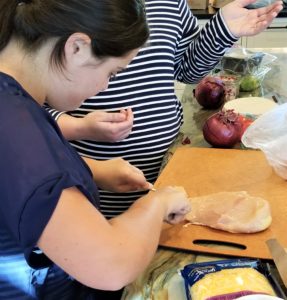 Teachers can start by interviewing the family about how past meetings went. What could have been better? What conversations went well? This interview is all about how you can help increase positivity throughout the process.
Teachers can start by interviewing the family about how past meetings went. What could have been better? What conversations went well? This interview is all about how you can help increase positivity throughout the process. 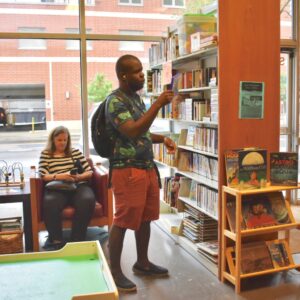 For this tip, teachers and family members can work together. Focus on the student. This may sound simple, but it is actually a much more involved process. Educators can focus on teaching students how to create their own measurable goals. Once the student understands
For this tip, teachers and family members can work together. Focus on the student. This may sound simple, but it is actually a much more involved process. Educators can focus on teaching students how to create their own measurable goals. Once the student understands 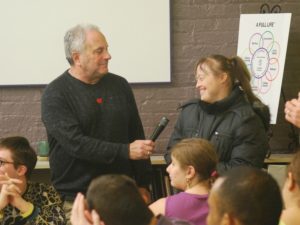 Happiness is one factor in many families’ decisions. The costs associated with care are another concern. According to
Happiness is one factor in many families’ decisions. The costs associated with care are another concern. According to 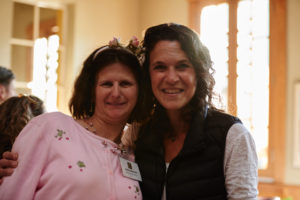 When direct service professionals focus on teaching life skills, such as cooking healthy meals and cleaning their home, an individual’s need for support in skill areas decreases. Learning life skills like these doesn’t only help individuals with disabilities maintain their spaces. It also helps them build community connections and employment skills.
When direct service professionals focus on teaching life skills, such as cooking healthy meals and cleaning their home, an individual’s need for support in skill areas decreases. Learning life skills like these doesn’t only help individuals with disabilities maintain their spaces. It also helps them build community connections and employment skills.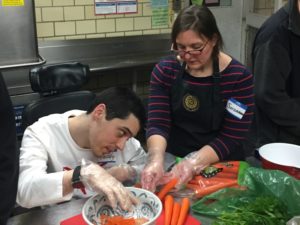 Home and community-based services funds have the potential to be used for a number of non-medical needs. Supports like employment help, remote monitoring equipment, and peer services aren’t traditionally covered. But with home and community-based services, access grows. Each of these supports can help an individual with disabilities achieve their dream of living in a community.
Home and community-based services funds have the potential to be used for a number of non-medical needs. Supports like employment help, remote monitoring equipment, and peer services aren’t traditionally covered. But with home and community-based services, access grows. Each of these supports can help an individual with disabilities achieve their dream of living in a community.

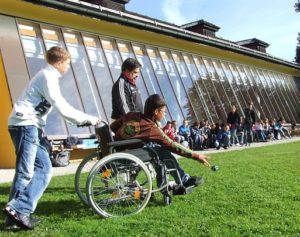 In each of these every day activities, these parents realized that their own fear was holding their child with disabilities back. Fearing the risks that come with everyday life, parents become overprotective and try to remove obstacles for their child. However, parents understand they can’t protect their child forever. They realize that they need to let some risk in, no matter how small.
In each of these every day activities, these parents realized that their own fear was holding their child with disabilities back. Fearing the risks that come with everyday life, parents become overprotective and try to remove obstacles for their child. However, parents understand they can’t protect their child forever. They realize that they need to let some risk in, no matter how small. With increasingly
With increasingly  Supported by life skills tutoring, individuals with disabilities can choose their goals, based on their hopes and dreams. With the support of their community – which can include family, neighbors, employers, as well as direct service professionals – people with disabilities’ quality of life can be improved immeasurably.
Supported by life skills tutoring, individuals with disabilities can choose their goals, based on their hopes and dreams. With the support of their community – which can include family, neighbors, employers, as well as direct service professionals – people with disabilities’ quality of life can be improved immeasurably.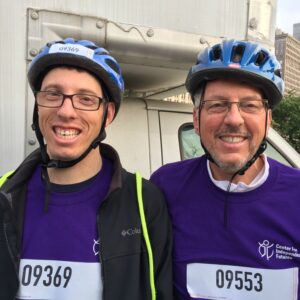 “We’re going to start from downtown and go all the way to Sheridan this year. That’s 15 miles,” Caleb explains. “Plus, me and my dad’s church friend wanted to accompany us this year. We’ve been talking to him about it, and he decided this is the year to do it!”
“We’re going to start from downtown and go all the way to Sheridan this year. That’s 15 miles,” Caleb explains. “Plus, me and my dad’s church friend wanted to accompany us this year. We’ve been talking to him about it, and he decided this is the year to do it!”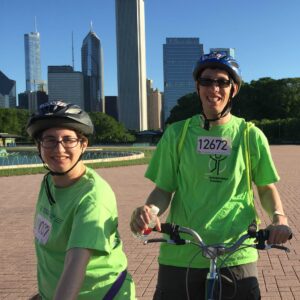 Caleb is preparing for his 15-mile bike ride with longer rides, especially since the weather is finally getting warmer. But first, he needed to get his bike checked out at Wheel & Sprocket after the long winter. This year it was time for some upgrades for Caleb’s light gray Giant Revel bike. “I had to install new wheels because my old fat tires were getting hard to lock up outside my apartment, so I got thinner ones.” Caleb continued, “My bike seat was old and it kept getting loose. The bicycle people said I should get a new seat. It would just slip out, and I couldn’t deal with that anymore!”
Caleb is preparing for his 15-mile bike ride with longer rides, especially since the weather is finally getting warmer. But first, he needed to get his bike checked out at Wheel & Sprocket after the long winter. This year it was time for some upgrades for Caleb’s light gray Giant Revel bike. “I had to install new wheels because my old fat tires were getting hard to lock up outside my apartment, so I got thinner ones.” Caleb continued, “My bike seat was old and it kept getting loose. The bicycle people said I should get a new seat. It would just slip out, and I couldn’t deal with that anymore!”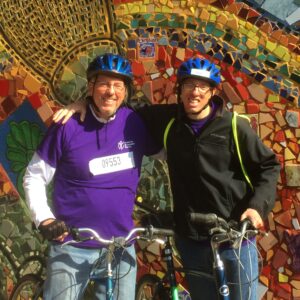 The Dream Team fundraises every year to support activities Independent Futures provides like Bike Club. Every dollar donated helps to keep our activities calendar full of exciting events. If
The Dream Team fundraises every year to support activities Independent Futures provides like Bike Club. Every dollar donated helps to keep our activities calendar full of exciting events. If  We want to offer congratulations to the winner of our annual Heads or Tails game, Linda Hauser! She won a gift card to Hotels.com plus tickets to the Chicago Shakespeare Theatre.
We want to offer congratulations to the winner of our annual Heads or Tails game, Linda Hauser! She won a gift card to Hotels.com plus tickets to the Chicago Shakespeare Theatre.  2019 was our biggest year yet in many ways! Though our silent auction had fewer items, our supporters still helped us raise more in this area than we could have hoped. Not to mention: this year’s live auction blew past years out of the water!
2019 was our biggest year yet in many ways! Though our silent auction had fewer items, our supporters still helped us raise more in this area than we could have hoped. Not to mention: this year’s live auction blew past years out of the water! 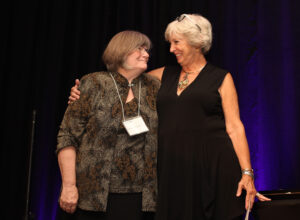 With more than 20 years of service, Jackie has been with Independent Futures since day 1. Really, she has been here since before day 1, meeting Jane at the bus stop where their children were picked up for school. The two bonded over the need for better access to future opportunities for people with disabilities.
With more than 20 years of service, Jackie has been with Independent Futures since day 1. Really, she has been here since before day 1, meeting Jane at the bus stop where their children were picked up for school. The two bonded over the need for better access to future opportunities for people with disabilities. 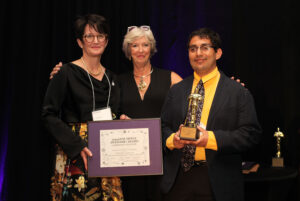 Since joining Independent Futures’ community, Nestor has grown in a variety of ways. He is a hard worker, a leader, and an active community volunteer. Over the last few years, Nestor joined the Young Professionals Board where he acts as a liaison to the Advisory Council.
Since joining Independent Futures’ community, Nestor has grown in a variety of ways. He is a hard worker, a leader, and an active community volunteer. Over the last few years, Nestor joined the Young Professionals Board where he acts as a liaison to the Advisory Council. 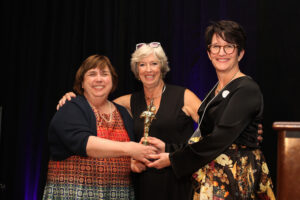 We awarded our final 2019 Awesome Award to Evanston Community Foundation. The foundation has walked alongside Independent Futures since the beginning. Evanston Community Foundation awarded Independent Futures our very first grant many years ago.
We awarded our final 2019 Awesome Award to Evanston Community Foundation. The foundation has walked alongside Independent Futures since the beginning. Evanston Community Foundation awarded Independent Futures our very first grant many years ago.  Last Thursday, Center for Independent Futures hosted an educational and engaging panel event at 1871 focusing on inclusive technology in Chicago. When developing our online learning management system, My Full Life, Independent Futures chose to focus on creating inclusive technology that would support adults with disabilities. In the last year, our consultants have met other technology professionals doing similar work. We were honored to bring these experts together for a conversation bringing accessibility and inclusion to the technology field.
Last Thursday, Center for Independent Futures hosted an educational and engaging panel event at 1871 focusing on inclusive technology in Chicago. When developing our online learning management system, My Full Life, Independent Futures chose to focus on creating inclusive technology that would support adults with disabilities. In the last year, our consultants have met other technology professionals doing similar work. We were honored to bring these experts together for a conversation bringing accessibility and inclusion to the technology field. 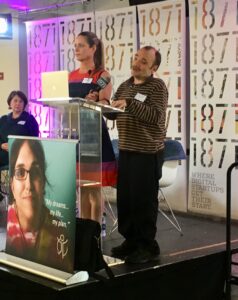 One of our community members, Jake, kickstarted the event by explaining how technology helps him in his daily life. Using screen readers, Jake is able to navigate the world and stay informed. His phone and computer both support him in living his full life. In fact, Jake used a screen reader to introduce our moderator, Roger Liew of
One of our community members, Jake, kickstarted the event by explaining how technology helps him in his daily life. Using screen readers, Jake is able to navigate the world and stay informed. His phone and computer both support him in living his full life. In fact, Jake used a screen reader to introduce our moderator, Roger Liew of 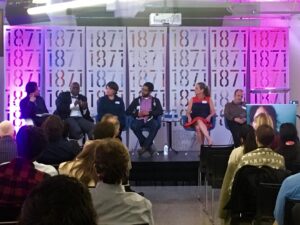 into the design process for developers. He noted, “Accessibility at big companies tends to start with compliance, but it has to move forward.” Cameron agreed, but she says even that isn’t enough. “People should start to look beyond big tech to companies like these that are developing with accessibility and inclusion in mind.”
into the design process for developers. He noted, “Accessibility at big companies tends to start with compliance, but it has to move forward.” Cameron agreed, but she says even that isn’t enough. “People should start to look beyond big tech to companies like these that are developing with accessibility and inclusion in mind.” 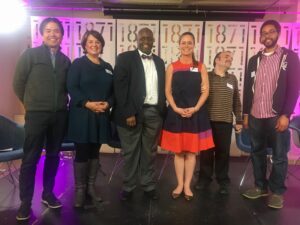 Richard expanded on this idea, explaining the biggest barrier for some people with disabilities has simply been “the technology catching up to they want to do. With technology, they can live their best full life.”
Richard expanded on this idea, explaining the biggest barrier for some people with disabilities has simply been “the technology catching up to they want to do. With technology, they can live their best full life.” 
